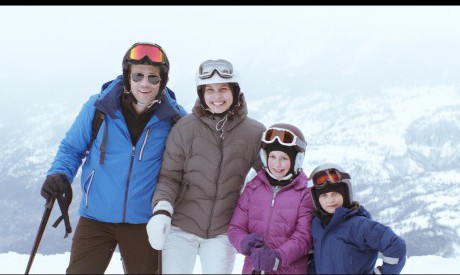How can we do the right thing?
Force Majeure
If you had lived in Germany in 1939, would you have helped protect Jews or gone along with their systematic extermination?
If you had been an MP 10 years ago, would you have milked your expenses for what they were worth?
And if you and your family faced a threat, would you protect them or save yourself?
We all like to think that in such situations our basic decency would shine through, but we can never know.
This is the central theme of Force Majeure, in which an avalanche suddenly threatens to engulf a Swedish family enjoying lunch on the terrace of a plush ski resort.
The husband and father, Tomas, flunks his test. Instead of trying to shield his wife and children he runs away, not forgetting his precious smartphone.
In the aftermath, several characters try to excuse him.
“In situations like these you’re not always aware of what you do,” says one. “You try to survive.”
Aristotle would not have been satisfied by this or the other excuses offered in Tomas’s defence. He would have insisted that in those few seconds, Tomas revealed his character.
Aristotle’s insight was that we rarely have the time or opportunity to sit down and think about what the best thing to do is before acting. Indeed, a good person does not have to do this.
To become good you have to practise being good by cultivating the habits of goodness. Only then will you find yourself doing the right thing almost automatically.
If you practise thinking about what you want to be and doing what is necessary to become that person, when you are tested you will be able to do the right thing without thinking. Continue reading
Sources
- The Guardian
- Image: Sharmill Films
News category: Features.




